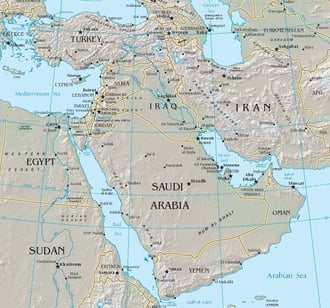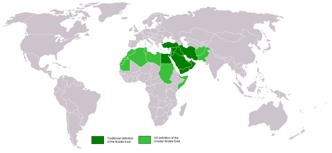For those who don’t have the ability to read Arabic literature before its translation, information about the International Prize for Arabic Fiction (IPAF) might not have made its way to you yet. However, in the past several years, we have been incredibly excited about the books that have won this prize and that have been translated into English for western readers. While we wish we could read many of these texts in their original language, for now, we’re thrilled to see that writers from Iraq, Jordan, and other regions of the Middle East are receiving international recognition for their glorious works of fiction.
What is the International Prize for Arabic Fiction?
 Now that you’ve heard about this literary prize, you might be wondering more about its history. According to the website for the IPAF, the award is an annual one that is given through support from both the Booker Prize Foundation (in London) and the TCA Abu Dhabi. The IPAF actually originated in 2007 “with an intention to address the limited international availability of high quality Arabic fiction.”
Now that you’ve heard about this literary prize, you might be wondering more about its history. According to the website for the IPAF, the award is an annual one that is given through support from both the Booker Prize Foundation (in London) and the TCA Abu Dhabi. The IPAF actually originated in 2007 “with an intention to address the limited international availability of high quality Arabic fiction.”
The initiative aimed to create a prize modeled after the Man Booker Prize, which has long been a marker of literary excellence. And the IPAF aims to have broad reach. To be sure, the prize is not only intended to bring Arabic fiction to a regional audience. Rather, the IPAF hopes to introduce readers across the globe to important works of fiction written in Arabic through translation.
How does the prize work? As the website explains, a panel made up of five judges (including literary scholars and critics) read more than 100 submitted novels per year. Much like the process for the Man Booker Prize, a longlist is announced, followed by a shortlist. Then, the judges select a winner. Each of the finalists receives $10,000 USD, and the winner of the IPAF receives an additional award of $50,000. The prize is ultimately announced and awarded in Abu Dhabi. The IPAF brings both critical attention and commercial success to works of fiction that might not otherwise be read by audiences in languages outside Arabic.
Notable Winners of the IPAF
 What are the titles of some of these awarded books? One of our favorite recent winners is Abdo Khal’s Throwing Sparks (2010), which was just published in English translation last year by Bloomsbury USA. The confessional novel traces the ultimately devastating thirty-year existence of Tariq, a violent Saudi hit man who becomes enslaved to a wicked Master. As the IPAF synopsis states, “In his novel, Abdo Khal explores the corrupting impact of power, making a statement by placing the marginalized and the powerless in the limelight.”
What are the titles of some of these awarded books? One of our favorite recent winners is Abdo Khal’s Throwing Sparks (2010), which was just published in English translation last year by Bloomsbury USA. The confessional novel traces the ultimately devastating thirty-year existence of Tariq, a violent Saudi hit man who becomes enslaved to a wicked Master. As the IPAF synopsis states, “In his novel, Abdo Khal explores the corrupting impact of power, making a statement by placing the marginalized and the powerless in the limelight.”
While one of the ultimate goals of the IPAF is to bring the honored works of fiction to a wider world audience, it can take quite a while for translations to be produced. One of the books for which we’re eagerly awaiting its English translation is Ahmed Saadawi’s Frankenstein in Baghdad, the 2014 winner of the IPAF. The award committee describes the Iraqi novel and its contemporary protagonist: “In the Spring of 2005, he takes the body parts of those killed in explosions and sews them together to create a new body. When a displaced soul enters the body, a new being comes to life.” As the IPAF website highlights, Saadawi’s novel “offers a panoramic view of a city where people live in fear of the unknown, unable to act in solidarity, haunted by the unknown identity of the criminal who targets them all.”
If you’re interested in reading more fiction written in Arabic and from regions of the Middle East, we recommend browsing the IPAF’s annual longlists and shortlists—you’re certain to find a book that strikes your fancy.









